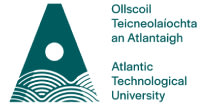This is a Masters by Research project.
Supervisors: Dr. Sarah Diffley, Dr. Isobel Cunningham
Project Summary:
While an emergent body of research exists in relation to the impact of digital technologies on entrepreneurship in general, there is little research in relation to the role of digital technologies on academic entrepreneurship. Hence, the concept of digital academic entrepreneurship has gained the attention of researchers. Defined as “a high level of utilization of new digital technologies to improve the emerging forms of academic entrepreneurship, such as the development of digital spinoffs and alumni start-ups, creation of entrepreneurial competence supported by digital platforms and broader range of innovation development that goes beyond the region” (Rippa and Secundo, 2019, p. 907), digital academic entrepreneurship refers to the role of universities in developing digitisation and innovation in business and society. This is achieved through academic venturing activities that through the use of digital technologies, result in the development of new offerings and progress business activities (Toniolo et al., 2020). Additional examples include online platforms to deliver courses, online communities to develop and refine business ideas, research collaborations with industry, employee education and the provision of extra-curricular digital support to students (Secundo et al., 2020:a; Secundo et al., 2021). The focus on digital academic entrepreneurship has accelerated due to the COVID-19 pandemic. (Garcez et al., 2021). Digital technologies were employed as a means of reconfiguring university programs and education processes (Secundo et al., 2021).
Digital academic entrepreneurship represents the intersection of digital technology and entrepreneurship, fostered within a community or ecosystem (Elia et al., 2020). Given their importance, a more detailed account of the nature of these ecosystems and the manner in which the digital technologies employed within them fosters entrepreneurial interactions between the actors, is necessary (Elia et al., 2020). Literature highlights that research in academic entrepreneurship must extend beyond financial returns to evaluate the social and economic advantages associated with its implementation (Secundo and Elia, 2014). Wood (2011) proposes that academic entrepreneurship has various benefits for the actors involved in the process. For universities, benefits extend to reputational and social benefits. Such benefits are realised through the potential for economic development and job formation, solutions to significant problems, licensing opportunities, increased research funding opportunities and institute-industry collaboration. Enhanced reputation is achieved through the commercialisation of research findings (Obschonka et al., 2019). For entrepreneurs, the process can provide a means of idea generation, intellectual property security and future business opportunities. Additional benefits for these actors and the region in which these processes occur is likely (Wood, 2011).
The overarching aim of the research is ‘To examine the digital academic entrepreneurship activities of third level institutions in Ireland and the implications for students, industry and institutions.’
The objectives of this research are to:
- Identify the digital academic entrepreneurship activities currently being undertaken within universities.
- Identify opportunities for digital academic entrepreneurship within universities.
- Identify the skills, competencies and supports required within universities to facilitate digital academic entrepreneurship activities.
- To examine the extent to which universities can leverage digital academic entrepreneurship activities as a means of enhancing student-institute relationships.
- To examine the extent to which universities can leverage digital academic entrepreneurship activities as a means of enhancing industry-institute relationships
The methodological approach employed in the research will be that of primary research. Following this design, quantitative data collection and analysis will first take place. Literature and the results from the quantitative data analysis will be employed to inform qualitative data collection. The sequential design is clear and straightforward. Analysis and reporting for results is also in a staged process (Creswell, 2009). While research in relation to digital academic entrepreneurship is in early stages, the integration, synthesis and adaptation of literature in the areas of academic entrepreneurship, educational entrepreneurship, graduate entrepreneurship and digital technologies in the context of entrepreneurship and education will facilitate the development of a quantitative data collection instrument. The findings from this phase will inform the qualitative data collection. Therefore, profiling of digital academic entrepreneurship activities and the examination of causal relationships between key variables identified from literature can be investigated using the quantitative data collection and analysis phase, followed by the depth exploration of these profiles and relationships using the qualitative data collection phase (Saunders et al., 2019).
Candidate Qualifications/Requirements:
Level 8, Degree in Business (minimum 2.1) or equivalent. Applicants will be called for interview, please note that shortlisting may apply.
Application Process
- To apply for this Masters by Research project, please send your CV and cover letter to the [Email Address Removed] by 5:00pm, Thursday 9th June. Please include "MR.15" in the subject of the email.
- Candidates should hold or expect to hold at least an Honours Degree in a relevant discipline and meet the University’s English Language requirements (minimum IELTS Level 6.5 or equivalent)

 Continue with Facebook
Continue with Facebook



